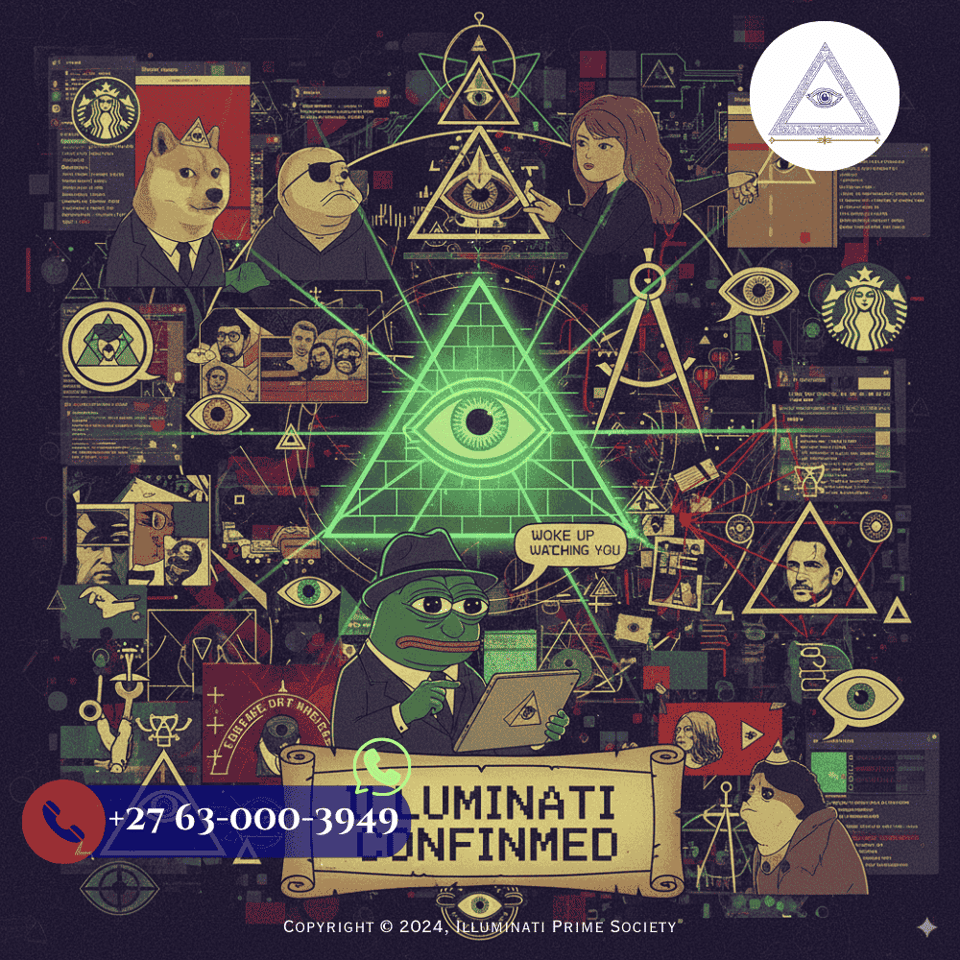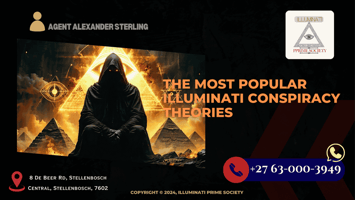Unravel the mystery of how Illuminati conspiracy theories gain traction on social media platforms...
The Rise of Illuminati Conspiracy Theories on the Web

From secret societies to internet memes: How Illuminati conspiracy theories have taken the web by storm.
To guide you deeper into the Illuminati ecosystem, talk to us:
-
“Ready to share your success story?” → Contact Form
-
“Learn directly from Agent Alexander Sterling” → Agent’s Blog
-
“Speak privately about your path” → Talk to Agent on WhatsApp ✅
- “Explore more member journeys” → /illuminati-member-testimonials
- "Illuminati in Modern Culture" → /illuminati-modern-culture
The Origins of Illuminati Conspiracy Theories
The roots of Illuminati conspiracy theories can be traced back to the late 18th century with the founding of the Bavarian Illuminati, a secret society created by Adam Weishaupt in 1776. Initially, the group aimed to promote Enlightenment ideals and combat religious and political oppression. However, it was disbanded by the Bavarian government within a decade, leaving a legacy shrouded in mystery and speculation.
Over time, the term 'Illuminati' has evolved, becoming synonymous with a shadowy elite purportedly controlling world events. This transformation was fueled by various historical and cultural factors, including political pamphlets, fictional literature, and the innate human fascination with hidden knowledge and power.
How Social Media Amplifies Illuminati Myths
In the digital age, social media platforms have become fertile ground for the propagation of Illuminati conspiracy theories. The ease of sharing content and the viral nature of these platforms allow myths to spread rapidly, often without verification. Memes, videos, and posts depicting supposed Illuminati symbols—such as the all-seeing eye or pyramids—are shared widely, perpetuating the narrative.
Algorithms that prioritize engagement further amplify these theories, creating echo chambers where like-minded individuals reinforce each other's beliefs. This phenomenon is exacerbated by the anonymity of the internet, which allows users to share and consume content without accountability, making it difficult to debunk false information effectively.
Famous Illuminati Conspiracy Theories in Pop Culture
Pop culture has played a significant role in embedding Illuminati conspiracy theories into the public consciousness. Numerous celebrities, including musicians, actors, and political figures, have been accused of being part of this secretive group. These claims often stem from the interpretation of symbols in music videos, public appearances, and social media posts.
Notable examples include the belief that artists like Beyoncé, Jay-Z, and Kanye West are members of the Illuminati, using their influence to control the masses. These theories are perpetuated by fans and critics alike, fueling speculation and intrigue around the true extent of the Illuminati's power and reach.
The Psychological Appeal of Illuminati Theories
The allure of Illuminati conspiracy theories lies in their ability to provide simple explanations for complex and often unsettling events. In times of uncertainty, people gravitate towards narratives that offer a sense of control and understanding. Believing in an all-powerful elite manipulating world affairs can be more comforting than accepting randomness or systemic issues.
To guide you deeper into the Illuminati ecosystem, talk to us:
-
“Ready to share your success story?” → Contact Form
-
“Learn directly from Agent Alexander Sterling” → Agent’s Blog
-
“Speak privately about your path” → Talk to Agent on WhatsApp ✅
- “Explore more member journeys” → /illuminati-member-testimonials
- "Illuminati in Modern Culture" → /illuminati-modern-culture
Additionally, these theories tap into a deep-seated human fascination with secrets and the unknown. The idea of uncovering hidden truths and being 'in the know' appeals to individuals' desire for significance and empowerment. This psychological appeal makes Illuminati conspiracy theories particularly resilient and pervasive.
Debunking and Addressing the Misinformation
Efforts to debunk Illuminati conspiracy theories often face significant challenges, given the deeply ingrained nature of these beliefs. However, critical thinking and media literacy are essential tools in addressing misinformation. Educating the public on how to evaluate sources, question narratives, and seek evidence-based information can mitigate the spread of falsehoods.
Organizations and individuals can also play a role by promoting transparency and open dialogue. By fostering a culture of inquiry and skepticism, it becomes possible to counteract the allure of conspiracy theories and encourage a more informed and discerning public.
.png?width=100&height=100&name=Illuminati%20Prime%20Society%20Logo%20(1).png)


